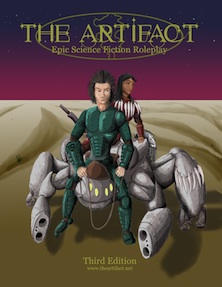Once the game is over with a wise GM will finish up by gauging how they did. There are many ways to do this, I’ll outline a simple method here but there are many others so if this isn’t really doing anything for your group, look into some other ways of giving yourself a grade.
What you don’t want to do is simply ask “Did I do ok?” or “Did you guys have fun?”. Unless somebody hated it, they’ll just say yes without thinking. Even if they hated it they might say yes to try and be nice. You need to be more specific in your questions.
Here are some questions that can give a good idea of how you did.
Did you get to at least try to do what you wanted this game? – The more yeses you get the better try for 100%
Was there a point in the game you felt your character was in the spotlight? – Again go for all yeses.
Did this game play out the way you expected it to? Was that a good thing? – This will be highly variable but will give you a better idea of what the players want.
Did this game move to slow, too fast or just right for you? – Take the comments and try to implement it. If they say the game was slow, streamline your method of making determinations or pair down your dialog until the players are satisfied.
If you could change one thing about the game today, what would it be? Why? – Most answers will likely be something like not missing an important roll. No matter how trivial the complaint may be, try and address it. Can the player use XP to raise a skill or attribute so that they’re less likely to fail next time?
You could go on for another hour with questions like this but keep it short. Players probably are tired at this point and burned out so go easy on them. Take some time to commend the players for things you feel they did well at. Try not to focus on one player no matter how much they dominated game play. You want all the players to have fun, recognizing a struggling player for what they do may encourage them to grow.
If the game allows for a character or characters to advance at the end of the game, help the players with the process, looking up any rules that they may need to use. You may need to hold their hand in this process several times before they’re able to do it on their own. Take into account what the player will be interested in before making any suggestions on how to apply things like XP. You might want them to advance in a certain direction that they do not want to move into.
So those are some general tips and tricks that probably aren’t in the “How to GM” description in the book. Let us know how these suggestions work out for you.


 The Free RPG Blog
The Free RPG Blog